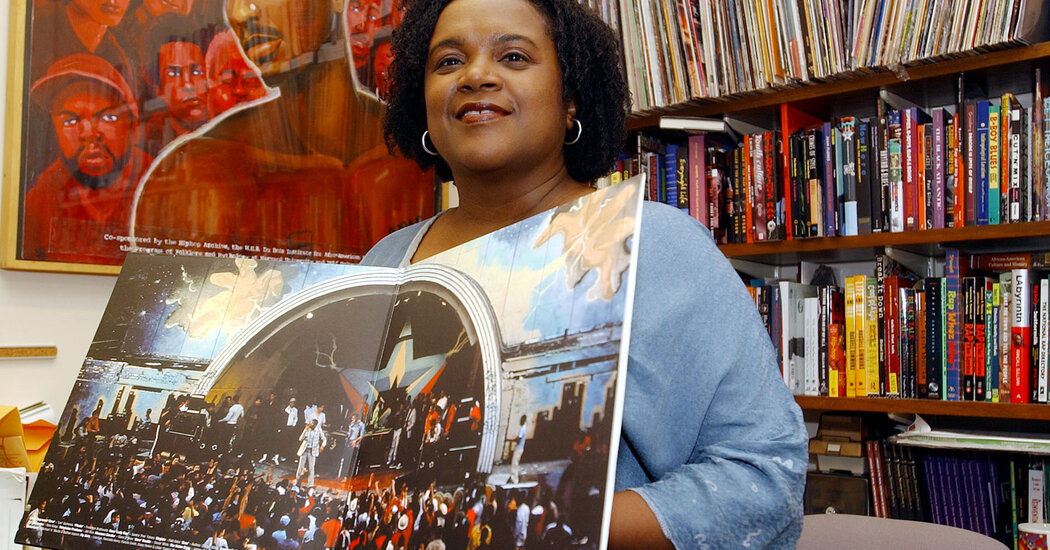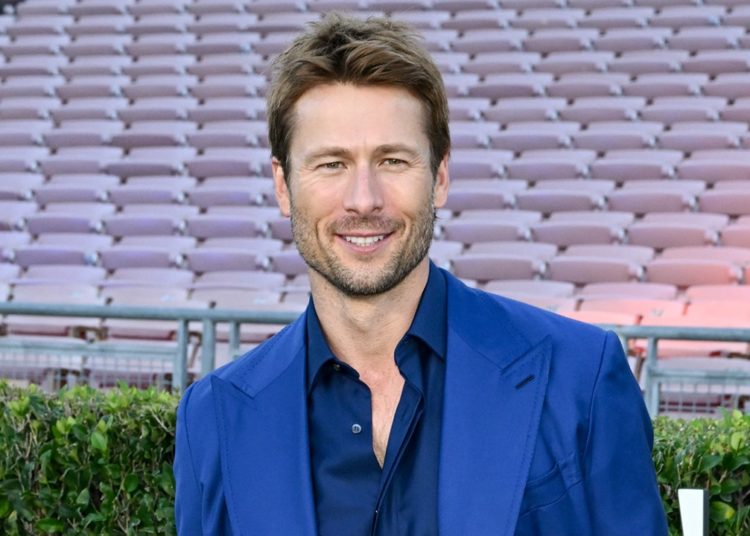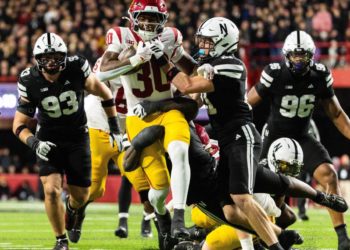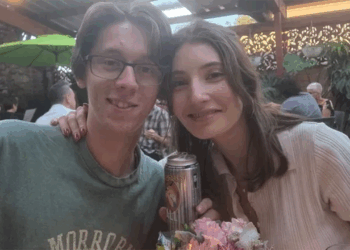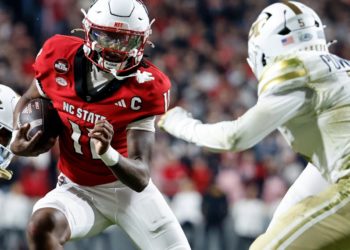When Marcyliena H. Morgan had the idea to open an archive of hip-hop music and culture at Harvard University in the 1990s, it raised eyebrows. But her idea caught on, and it grew into a showcase that established a genre born in the streets as a topic of serious academic study.
Professor Morgan died on Sept. 28 in a Boston hospital from complications of Alzheimer’s disease, her husband, Prof. Lawrence Bobo, said. She was 75.
Professor Morgan, a linguistic anthropologist who taught in the university’s African and African American studies department, “was the scholar queen of hip-hop,” Henry Louis Gates Jr., the Harvard professor and celebrated author and cultural critic, said in an interview.
Professor Gates directs Harvard’s Hutchins Center for African & African American Research, which houses what became the university’s Hip Hop Archive & Research Institute. He recalled how outlandish Professor Morgan’s idea seemed when she pitched it to him. “Hip-hop?” he recalled responding. “Isn’t this just a passing fad?”
“I’m an R&B and soul guy,” he added. “But Marcy said, no, no, you’re an idiot. Hip-hop is here to stay. It’s a phenomenon.”
Professor Morgan opened an early version of the archive in 2002, with the intention of chronicling the rise of hip-hop from the rubble-strewn streets of the South Bronx in the 1970s to the global juggernaut it became.
Along with its collection of rap albums from Ice Cube, Missy Elliott, Wu-Tang Clan and many others, the archive includes collections of hip-hop magazines like The Source and Vibe, fliers for house parties and concerts, and other ephemera, including one of the signature oversize clock necklaces worn by Flavor Flav of Public Enemy.
The archive, which features a working turntable for visiting D.J.s and a slick patch of linoleum flooring for break-dancing exhibitions, also served as a classroom for Professor Morgan, the first professor at Harvard to teach courses on hip-hop history and theory.
Underscoring her conviction that rap is an art form on a par with jazz or classical music, the archive’s Classic Crates initiative — curated by the hip-hop D.J. and producer 9th Wonder — is installing albums by the likes of Nas, Lauryn Hill, Kendrick Lamar and A Tribe Called Quest, with scholarly analyses, at Harvard’s Eda Kuhn Loeb Music Library, where it will share space with works by Bach and Beethoven.
Her accomplishments took on added resonance because the archive is at Harvard — a paragon of intellectual accomplishment but also a symbol of highbrow culture that the original generation of rappers, break dancers and graffiti artists had little hope of penetrating.
“When you think about hip-hop, we’re talking about kids who nobody, for the most part, said to them, you are brilliant, you are magnificent, you are going to be the most amazing artist,” Professor Morgan said in a 2018 interview with “PBS NewsHour.”
“They aren’t hearing that,” she added, “but they say it to each other.”
Under her guidance, the archive came to represent an intersection of street culture and scholarly inquiry. In 2003, Professor Morgan convened a conference called “All Eyez on Me: Tupac Shakur and the Search for the Modern Folk Hero,” involving notable academics like Professor Gates and Michael Eric Dyson. In 2015, Chance the Rapper discussed digital streaming, police violence and other topics in one of Professor Morgan’s classes at the archive.
Harvard’s archive became a model for similar institutions at Cornell University; the College of William & Mary in Williamsburg, Va.; the University of Massachusetts, Boston; and Georgia State University.
Her efforts also helped hip-hop gain new credibility in other elite corners. “I actually can’t imagine Kendrick Lamar having received a Pulitzer,” Imani Perry, a fellow Harvard professor and a 2023 MacArthur fellow, once said, “without the imprimatur of the archive.”
Marcyliena Hazel Morgan was born on May 8, 1950, in Chicago, the third of six daughters of Henry Morgan, a union organizer for Chicago telephone workers, and Juliette (Murray) Morgan, a manager for a city data center.
After graduating from Englewood High School in 1968, she enrolled at the University of Illinois, Chicago, where she received a bachelor’s degree in communications anthropology in 1972, followed by master’s degrees at the University of Illinois in 1973 and the University of Essex in Britain in 1978 and a doctorate in anthropological linguistics at the University of Pennsylvania in 1989.
Through her lens as an authority on linguistics, she had been tracking the evolution of hip-hop language since the 1980s, observing its distinctive syntactic patterns and irregular use of common words, like “woke” to mean enlightened, she told “PBS NewsHour.” Such efforts were often born of desperation.
“At that point in time,” she said, “hip-hop was clearly about representing who you are in a context where people are trying to bury you.”
She began to accumulate the seeds of the archive from materials left over from student projects on hip-hop while teaching at the University of California, Los Angeles, before moving on to Harvard.
Students “would have all these stories about ‘This was the first time somebody did this,’ ‘This album represents that,’” she recalled in a 2013 interview with the podcast “Left of Black.” “Suddenly I had all this stuff and thought, ‘Well, we have to do something with it.’”
While most dissections of hip-hop language and culture have focused on male artists, Professor Morgan long sought to showcase the accomplishments of the genre’s female innovators, including through her course at Harvard on hip-hop feminism.
“You look at MC Lyte, you look at Salt-N-Pepa, women really led that move to talk about taking care of yourself, protecting yourself from the spread of H.I.V.,” she told “PBS NewsHour,” citing the condom packets that the female rap group TLC wore on their outfits in the early 1990s to promote safe sex. “All of that,” she added, “is happening with a generation who is listening and learning.”
In addition to her husband, Professor Morgan is survived by her sisters, Madeline, Muzette and Marla Morgan.
More than just a collection of pop-culture artifacts, what will soon be known as the Marcyliena H. Morgan Hip Hop Archive and Research Institute is a survey of hip-hop’s stunning transformation from a marginalized genre once derided, if not feared, by the mainstream to a dominant cultural force in which rappers perform Super Bowl halftime shows and build billion-dollar business empires.
“Hip-hop’s message is to build,” Professor Morgan said in the 2018 PBS interview. “It comes from not being prejudiced, not seeing race, but seeing content of character.”
Alex Williams is a Times reporter on the Obituaries desk.
The post Marcyliena Morgan, Founder of Harvard’s Hip-Hop Archive, Dies at 75 appeared first on New York Times.
